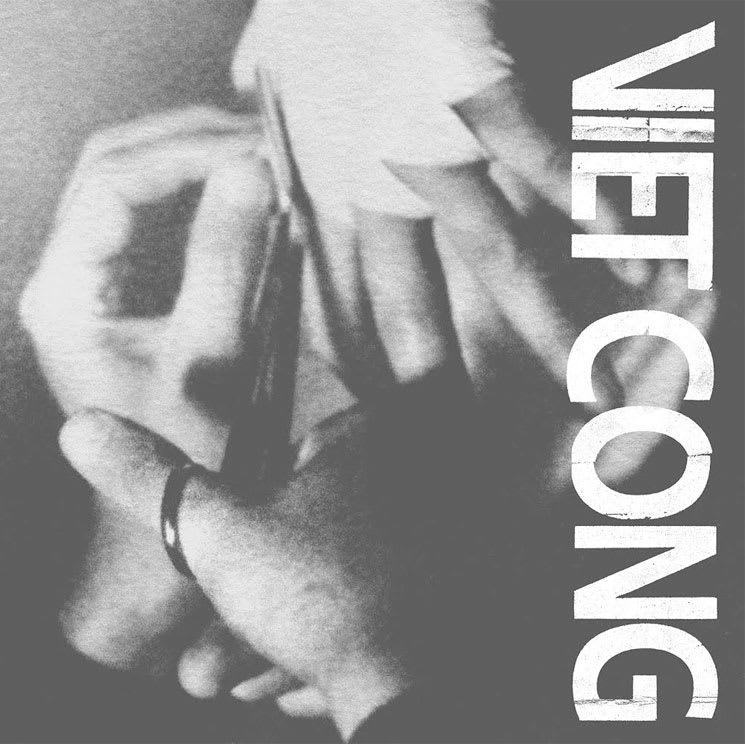To some, Viet Cong will always live in the shadow of Matt Flegel and Mike Wallace's previous band, Women. That's fair. Plenty of people never forgave the surviving members of Joy Division for continuing on as New Order. But in case Viet Cong's first record, the twice-released Cassette, wasn't enough to convince people that it's time to move on from Women, the Calgary band's self-titled debut album should have no problem doing the trick.
Recorded with Graham Walsh (Holy Fuck) inside a barn, Viet Cong maintains the same shadowy, droning tones that haunted Cassette, only taking them deeper into the abyss. At the same time, it's strangely more direct and unconventional: One minute there are magnificent melodies feeding off Flegel's dismal lyrical outlook and creeping voice and chiming through "Continental Shelf" and the synth-bleeding "Silhouettes"; the next, their restless determination to explore all avenues takes over and the songs begin to metamorphose into three-part juggernauts. Together, "March of Progress" and "Death" could have accounted for another four songs to add to the track list; both songs delve into this band's collected influences, moving from ambient noise and jangle pop to goth and post-punk.
It's these frenzied, sharp-turn transitions are what make this band feel so vital, so alive and so different. And really, there is no better way to end an album that with a song called "Death" that does its absolute best not to meet its end.
(Flemish Eye/Jagjaguwar)Recorded with Graham Walsh (Holy Fuck) inside a barn, Viet Cong maintains the same shadowy, droning tones that haunted Cassette, only taking them deeper into the abyss. At the same time, it's strangely more direct and unconventional: One minute there are magnificent melodies feeding off Flegel's dismal lyrical outlook and creeping voice and chiming through "Continental Shelf" and the synth-bleeding "Silhouettes"; the next, their restless determination to explore all avenues takes over and the songs begin to metamorphose into three-part juggernauts. Together, "March of Progress" and "Death" could have accounted for another four songs to add to the track list; both songs delve into this band's collected influences, moving from ambient noise and jangle pop to goth and post-punk.
It's these frenzied, sharp-turn transitions are what make this band feel so vital, so alive and so different. And really, there is no better way to end an album that with a song called "Death" that does its absolute best not to meet its end.
